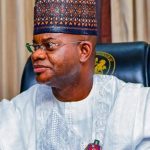The Nigerian Federal Government, following the recent endorsement of a special purpose vehicle (SPV) to facilitate the rollout of an extensive 90,000 km fibre-optic network, has initiated strategic discussions with the World Bank.
Bosun Tijani, the Minister of Communications and Digital Economy, revealed these developments during the inauguration of Nigeria Week in Washington, D.C., United States.
The ambitious project is set to expand Nigeria’s fibre-optic infrastructure from its current 35,000 km to an impressive 125,000 km, positioning the nation as the owner of the third-largest terrestrial fibre-optic network in Africa, trailing only South Africa and Egypt.
A staunch advocate for rapid broadband deployment as a catalyst for Nigeria’s digital economic growth, Tijani, also a co-founder of Nigeria’s pioneering tech hub, CcHUB, has been actively collaborating with key stakeholders for the past half-year to propel this project forward.
Celebrating the commencement of Nigeria Week, Tijani shared insights into his productive dialogue with the World Bank’s Global Digital Development team, focusing on Nigeria’s digital economy blueprint and the specific goal of constructing the 90,000 km fibre-optic network.
Prior to his visit to Washington, Tijani had engaged World Bank representatives in a virtual meeting to deliberate on Nigeria’s digital trade priorities and to examine the initial findings from the Digital Trade Policy Gap Analysis.
In pursuit of enhancing broadband access nationwide, which currently stands below the 50% mark, the minister has also spearheaded the creation of an artificial intelligence strategy, convening a group of approximately 120 researchers recently.
Tijani reaffirmed his commitment to establishing a robust connectivity infrastructure, expressing gratitude for the growing support from international partners in achieving nationwide fibre-optic connectivity.
In May, the Federal Government’s assignment of the SPV was a pivotal step, with Tijani noting that it would emulate some of Nigeria’s most successful public-private partnerships.
He emphasized that this enhanced network connectivity is expected to bridge the digital divide by linking over 200,000 educational, healthcare, and social institutions, thereby extending internet benefits to a broader segment of the Nigerian populace.
The National Broadband Plan 2020–2025 sets forth Nigeria’s objective to attain a 70% broadband penetration rate and 90% population coverage by 2025.
However, the nation confronts several hurdles, including fibre infrastructure scarcity, exorbitant Right of Way (RoW) licensing fees imposed by state governments, security issues, restricted foreign exchange access, and pervasive taxation.
The World Bank has estimated that an annual investment of $6 billion is necessary to close Africa’s digital gap and democratize access to digital technologies.
In a promising development, the Nigerian Communications Commission has successfully negotiated RoW fee exemptions in six states, a move anticipated to significantly invigorate the telecommunications sector.
Discussions are ongoing to secure further RoW fee concessions in additional states.





